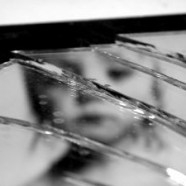
Several weeks ago, I attended a two-day workshop in the beautiful university town of Boulder, Colorado. I always like visiting Boulder for its “uniqueness”. Readers who’ve been there will understand what I mean by that. The workshop leader was Carol Forgash, LCSW; a specialist in trauma therapy. Among the more helpful features of the workshop was learning about the Adverse Childhood Experiences (ACE) Study conducted as a collaborative research effort between the Centers for Disease Control and Prevention (CDC) in Atlanta, Georgia, and Kaiser Permanente in San Diego, California. The two principal investigators were Robert F. Anda, MD, with the CDC, and Vincent J. Felitti, MD, with Kaiser Permanente.
Over 17,000 Kaiser patients participating in routine health screening volunteered to participate in The Study; one of the largest investigations ever conducted to assess the associations between adverse childhood experiences and later-life health and well-being. Specifically, the data–which continues to be analyzed–reveals sobering proof of the health, social, and economic risks that result from childhood trauma in the United States. This is to suggest, according to The Study, that some of the worst health and social problems in the nation can arise as a consequence of adverse childhood experiences.
While the ACE Study proper was conducted in the mid-1990s, some of the concepts had their beginnings in 1985. Dr. Felitti, a specialist in Preventive Medicine, initially intended to help obese people lose weight. Surprisingly, ironically, those patients most likely to drop out of of his weight loss program were those who were successfully losing weight! Upon closer examination of almost 300 such patients, Dr. Felitti learned that many had been using obesity as a defense against unwanted sexual and/or physical attack. Many of these individuals has been sexually and/or physically abused as children. While obesity initially presented as “the problem,” it was often found that “the problem” served as the unconscious “solution” to other, more covert problems; namely, abuse! This was unexpected. And, as is often the case, many of these patients were reluctant from telling anyone about the abuse–including medical personnel–because of familial and social taboos.
As the ACE Study began to take shape, the research team found that in the majority of situations, several ACEs existed in a child’s home. A simple scoring system was developed–called the ACE Score–in which one point was given (0-10) for each category of exposure to childhood abuse and/or neglect before age 18. Although 1/3 of participants (remember, we’re talking 17,000) reported no ACEs, 2/3’s reported ACEs – which often turned out to be cumulative. Researchers discovered that the higher the score, the greater the exposure–and risk–of negative consequences throughout life – including early death.
The ACE Questionnaire/Scoring reads as follows:
While you were growing up, during your first 18 years of life:
1. Did a parent or other adult in the household often or very often…swear at you, insult you, put you down, or humiliate you? or,act in a way that made you afraid that you might be physically hurt? Yes No (If yes, enter 1 __)
2. Did a parent or other adult in the household often or very often…push, grab, slap, or throw something at you? or, ever hit you so hard that you had marks or were injured? Yes No (If yes, enter 1 __)
3. Did an adult or person at least 5 years older than you ever…touch or fondle you or have you touch their body in a sexual way? or, attempt or actually have oral, anal, or vaginal intercourse with you? Yes No (If yes, enter 1 __)
4. Did you often or very often feel that…no one in your family loved you or thought you were important or special? or, your family didn’t look out for each other, feel close to each other, or support each other? Yes No (If yes, enter 1 __)
5. Did you often or very often feel that…you didn’t have enough to eat, had to wear dirty clothes, and had no one to protect you? or, your parents were too drunk or high to take care of you or take you to the doctor if you needed it? Yes No (If yes, enter 1 __)
6. Were your parents ever separated or divorced? Yes No (If yes, enter 1 __)
7. Was your mother or stepmother: Often or very often pushed, grabbed, slapped, or had something thrown at her? or, sometimes, often, or very often kicked, bitten, hit with a fist, or hit with something hard? or ever repeatedly hit at least a few minutes or threatened with a gun or knife? Yes No (If yes, enter 1 __)
8. Did you live with anyone who was a problem drinker or alcoholic or who used street drugs? Yes No (If yes, enter 1 __)
9. Was a household member depressed or mentally ill, or did a household member attempt suicide? Yes No (If yes, enter 1 __)
10. Did a household member go to prison? Yes No (If yes, enter 1 __)
Now add up your “Yes” answers: _____ This is your ACE Score.
—————————————–
For additional information about the ACE Study, see www.acestudy.org.
Bill Bray, Colorado Springs, CO


Wow, This paragraph its just the content I have been searching for, I couldn’t refrain from commenting. Exceptionally well written! bookmarked!!, I like your website!.
Hello with out doubt this write-up is remarkable, I just had to a comment, I simply adore the simplistic way this web-site is penned , just to let you know I have bookmarked as their favorite.